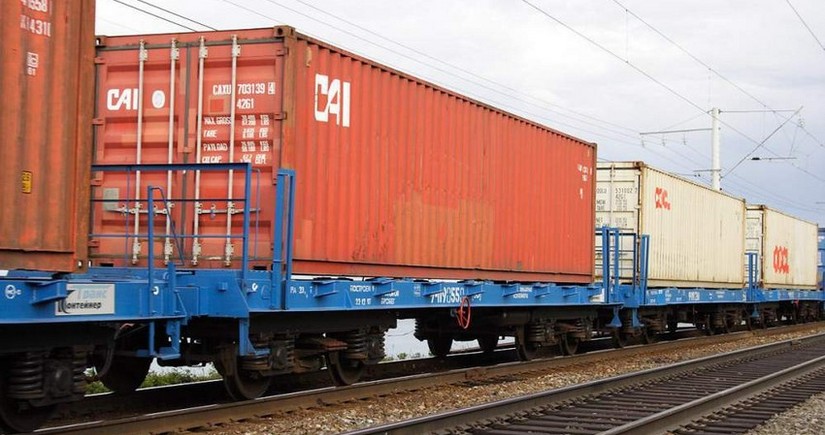Maersk eyes expansion of multimodal solutions on Middle Corridor
- 18 March, 2025
- 12:04

The Danish company Maersk, specializing in maritime freight transportation and port terminal services, is exploring opportunities to expand multimodal solutions to increase supply chain flexibility on the Middle Corridor (Trans-Caspian International Transport Route, TITR), Central Asia and Caucasus Region Business Development Head, Irakli Danelia, said in an interview with Report.
He noted that the company considers this route as a strategically important element in diversifying transport flows and increasing the resilience of global supply chains.
"With shifting trade dynamics and increasing geopolitical uncertainties, the Middle Corridor presents a strategic alternative to traditional routes by linking Central Asia, the Caucasus, and Europe. Maersk views the corridor as an emerging route that can complement existing trade lanes, particularly for time-sensitive shipments and markets requiring improved connectivity," he said.
He stressed that Maersk evaluates the Middle Corridor taking into account such key parameters as transit time and predictability, route reliability and tariff stability, infrastructure development - rail connections, ports, terminals, customs and border procedures, digitalization and availability of real-time tracking systems.
To attract shippers, the route must provide predictable and efficient delivery schedules, competitive rates, and minimal border delays. In this regard, it is necessary to develop infrastructure at key points (railway connections, ports, and terminals), as well as enhanced coordination (through real-time tracking systems and data exchange mechanisms) between countries participating in the corridor, emphasized the head of the department.
Among the main challenges, he highlighted unstable transit times, infrastructure bottlenecks, and the need for more coordinated cooperation between operators: "Maersk acknowledges Azerbaijan’s strategic role as a transit hub along the Middle Corridor. We are actively offering cross boarder inalnd solutions to/from Azerbaijanian locations via Poti sea Port to the rest of the World by partnering with local transport and logistics operators to improve cargo visibility and operational efficiency."
"Maersk is committed to enhancing the corridor's efficiency by collaborating with regional stakeholders to improve border-crossing processes, increasing coordination with rail operators to ensure sufficient rolling stock availability, exploring digital solutions for better shipment tracking and visibility, developing multimodal solutions that combine rail, road, and sea transport to provide flexible and reliable options for customers," he added. "Maersk is actively promoting the adoption of digital tools to improve supply chain transparency and efficiency in the Middle Corridor. This includes implementing real-time cargo tracking, developing digital documentation solutions, and exploring predictive analytics to improve route planning. Enhanced digitalization will be key to overcoming operational inefficiencies and improving customer experience along the corridor."
The Middle Corridor connects China, Kazakhstan, the Caspian Sea, Azerbaijan, Georgia, Türkiye and Europe. In 2023, Azerbaijan, Georgia and Kazakhstan signed an agreement to establish a joint railway company, Middle Corridor Multimodal Ltd., to improve the efficiency of transit transportation.
The volume of cargo transportation along the TITR increased by 62% in 2024, reaching 4.5 million tons.
By 2027, the route's capacity may increase to 10 million tons. In 2025, it is projected that 5.2 million tons of cargo will be transported, of which 4.2 million tons will go along the TITR member countries. Of this volume, 2.5 million tons will be dry cargo (96,000 TEU), and 1.7 million tons will be oil.
